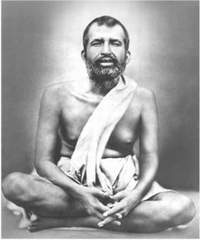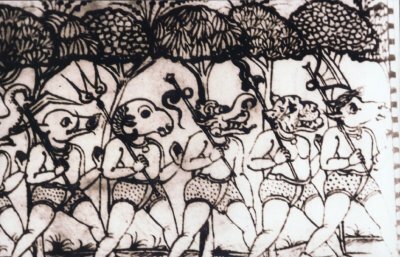Stephen Roney's Blog, page 41
May 1, 2024
Support Grows for an Invasion of Canada
The Further Deterioration of Democracy in Canada
Might Makes Wrong?

This tweet by Elon Musk caught my attention:
“The axiomatic error undermining much of Western Civilization is ‘weak makes right’.
If someone accepts, explicitly or implicitly, that the oppressed are always the good guys, then the natural conclusion is that the strong are the bad guys.”
This seems to explain how so many are currently supporting Hamas, and its terrorist tactics, against Israel.
But given this example, it is not exactly “might makes wrong.” Israel is not that mighty: pitched against Hamas alone, it is more powerful, but the broader reality is that Israel is a small state surrounded by much larger enemies. Hamas sought to provoke a larger conflagration, and simply lost that gamble, so far.
So it is mot quite that Israel is more powerful. The precise formula seems rather “success makes wrong,” and “failure makes right.”
One persecutes the Jews, for example, not because they are powerful. They are still always and everywhere a vulnerable minority. It is because they are, individually, more successful.
Such a formula is obviously destructive to the common good. If all success is condemned and punished, everything will fail in time.
There is a kernel of righteousness in the “weak makes right” argument. Those who crave power are more likely to achieve power. Those who crave wealth are more likely to achieve wealth. And these are vices. Accordingly, it stands to reason that the rich and powerful are more likely to be immoral, as a group, than the poor. Hence the Beatitudes: “blessed are the poor in spirit…”
However, assuming that someone is immoral because they are rich and powerful, or moral because they are poor and weak, is prejudice. As Musk goes on to say, this is no substitute for making moral judgements.
Cain killed Abel because he was more successful. God did not exempt the poor in Sodom and Gomorrah, or Nineveh, or Canaan.
Those supporting without question the notion that “weak makes right” are simply possessed by the vice of envy.
'Od's Blog: Catholic comments on the passing parade.
April 30, 2024
Ending Poverty by Ending the Poor
April 28, 2024
Influencers
 Ramakrishna
RamakrishnaI challenged a Chinese student to reflect on the influences on his thinking: whom did he trust? Whom did he accept as an authority?
It is a useful exercise in these times, when authorities seem untrustworthy. It is time to reestablish our bedrock.
So I propose to outline my own influences.
I cannot trust the government. I cannot trust the priests, bishops, cardinals, or even the pope. I cannot trust the legal system. I cannot trust the academy. I cannot trust “the science.” I cannot trust the professions. I cannot trust my doctor. I cannot trust artists.
But there are still the older authorities, who, although dead, can speak to us. There are the great minds of the past.
First is Plato’s concept of the ideal forms. I believe it is absolutely true, vitally important, and generally suppressed. As Blake said, the mind must enter this world as a garden fully planted. I do not trust Plato on politics. Politics and metaphysics take a different kind of thinking; a philosopher who is good on one seems inevitably bad on the other.
On politics, I trust John Locke. I’d add John Stuart Mill on freedom of speech, and Jefferson’s Declaration of Independence. Everything good in government can be extrapolated from these.
But I think Locke’s ontology and epistemology is absurd.
George Orwell is also an influence in politics. Milton Friedman is an influence in economics.
Probably my main influence among philosophers is Descartes. I think his conclusions in the Meditations are the foundation of all possible knowledge, and definitive on the nature of the human soul. I then accept Berkeley’s resolution of Descartes’ “mind-body” conundrum: that is, how these categorically different spheres of being, mind and body, can interact. Simple: there is no body. I do not believe anyone can refute this. Blake: “the body is that portion of the soul perceptible to the five senses.”
William Blake has also been a profound influence on me. He was really my door into philosophy, and into monotheism. He is usually thought of as a poet, or if not that, an engraver. But he was a universal genius.
I believe Anselm’s ontological proof of the existence of God is irrefutable. But it is only one of many; I also find Craig’s Kalam cosmological argument irrefutable.
The Greek myths, Aesop’s fables, Shakespeare, Dostoyevsky, and the fairy tales are authoritative on human psychology. Accept no substitutes.
Then there is the Bible. Even if you do not consider it the revealed word of God, you must accept it as all the vital information our ancestors gathered over the millennia, which they wanted to convey to us. If you are going against the Bible, you know you are wrong.
Confucius’s Analects are also authoritative. They have kept China in good order for millennia. Alarms bells should go off if you are clearly going against anything there.
I cannot point to any one other specific source in Eastern thought. I have learned much from Buddhism, and from Hinduism, but in the end it all pointed back to ethical monotheism. As Ramakrishna put it, “I want to taste sugar; I don’t want to BE sugar.”
'Od's Blog: Catholic comments on the passing parade.
April 27, 2024
Scanning the Help Wanted Columns

It’s laughable, but it’s probably true. Warren Kinsella, who claims to have inside sources, says everyone around him knows it is time for Justin Trudeau to resign as Liberal leader. It is that party’s only hope to “save the furniture.” But the holdup is that they can’t find a suitable new job for him.
This is an unfortunate consequence of electing someone unqualified to high political office. They are bound to cling to it. Other ex-PMs, with law degrees, could easily slip into a position with some top corporate firm. Otherwise, management experience or an M.B.A. might justify a seat on a corporate board. He doesn’t have the academic credentials nor gravitas to look plausible as a visiting professor; the appointment might be more embarrassment than embellishment for a prestigious institution. A job as a lobbyist would be unseemly and look shabby; and, in any case, Trudeau is too egotistic to butter successors up and ask for favours.
So Trudeau’s tempted to overstay in this job because it seems he will never get another job nearly so good. And it’s not just the money, I’m sure. It’s the blow to his ego. Makes him look like a failure.
Theoretically, the Liberals could appoint him to some cushy position within government. Although, if it were not to some international body, or Governor-General, it would still look like a comedown. But even if Trudeau was appointed to some ambassadorship or the like by a new Liberal leader, it would be barely weeks before the next election. It would become an issue during that election, as Turner’s spate of patronage appointments in 1984 helped sink that Liberal ship. And the appointment would be reversed as soon as the new government came into power, as Mulroney cancelled John Turner’s appointments.
The Liberals are probably looking at a eight to twelve years out of power. That’s a long time to try to make a living as a supply teacher.
Could he be appointed to some sinecure by a helpful provincial government? That’s still a comedown. There is only one Liberal premier in office, Furey in Newfoundland. An appointment in Newfoundland would look fishy, and it is not a big province with many important positions in its purview. And Trudeau has been feuding with Furey, and all the premiers.
He has similarly alienated important foreign leaders: of Italy, India, Russia, Saudi Arabia, Israel. He has an undiplomatic reputation. No international body is likely to welcome him to a position of leadership, other, perhaps, than the WEF.
The subsidized media might be expected to give him a position as a full-time political commentator or the like. But he has shown no ability to say anything insightful or candid; it would not be a natural fit. The CBC, faced with a new Conservative government, probably wouldn’t dare be so openly partisan. Other outlets probably couldn’t see a business case for it; he’s unpopular, and would compromise their reputation for fairness. Sure, maybe we owe him, but why can’t the next guy take the hit? We’re struggling here.
You’d think his friends in China or Cuba would offer him something.
Or Disney? How about the lead in a new version of "Song of the South"?
'Od's Blog: Catholic comments on the passing parade.
April 26, 2024
On Just Repeating Prayers Like a Trained Seal
Friend Xerxes, former left-wing political columnist, has eschewed politics. I suspect this is because he realized that the left-wing position has become indefensible. Why fasten himself to a dying animal? His latest column is about prayer. In a piece titled “Getting Beyond the Rituals,” he expresses the common Protestant objection to rote prayers and ritual generally. Instead, you are supposed to speak and do from the heart.
I was seduced when younger by this dismissal of rote prayer—after all, surely your heart can’t be in it? And the inevitable result was that I stopped praying.
“What deadens us most to God's presence,” Xerxes’s source argues, “is the inner dialogue that we are continuously engaged in with ourselves, the endless chatter of human thought… including the chatter of spoken prayer.”
Here “spoken prayer” is being conflated, Improperly, with rote prayer. St. Theresa of Avile would agree that “mental prayer” is better than praying out loud. But that, as the quotation goes on to make clear, is not what Frederick Beuchner, Xerxes’s source, means.
“I keep trying, and once or twice I have been conscious, but not conscious of anything, not even of myself. I have heard a stillness that encloses all sounds, stilled the way whiteness encloses all colors, stilled the way wordlessness encloses all words. I like to believe that once or twice, at times like those, I have bumbled my way into at least the outermost suburbs of the Truth that can never be told but only come upon, that can never be proved but only lived for and loved.”
And my Catholic objection is this: this is not prayer. He is necessarily not conscious, as he claims, of “God’s presence”: he is “not conscious of anything, not even of himself.” Whatever is happening, this allows for no personal relationship with God, which is what prayer is supposed to be about.
Moreover, this amounts, by his own admission, to praying only once of twice in your life.
In other words, it is an alibi for forgetting about God.
“The Truth that can never be told?” A Truth beyond words? Jesus is the Word; and he is the only path.
I recently came across a map on the internet that sought to divide Europe into two zones: religious Europe and atheist Europe. I presume they had no particular religious axe to grind, but the line they drew was almost exactly the line between Catholic Europe and what had been, since the Reformation, Protestant Europe.
Being filled with the Spirit, being inspired, is great, but it does not stick around. And, without ritual, you are left with nothing. And no way to get it back.
'Od's Blog: Catholic comments on the passing parade.
April 25, 2024
The Peaceable Dominion

There are riots on Parliament Hill applauding terrorism.
One of Canada’s great advantages has always been that it is a high-trust society. It is a place where, as Michael Moore once remarked, people did not lock their doors while at home. That used to be true, and that was unheard of just across the border in the US. The old joke was that, in the streets of Toronto at 2 AM, deserted, cars still always stopped at the lights.
This was a land where the police force was a beloved national symbol. It was the land of “peace, order, and good government.” The streets of Toronto were notoriously clean: “New York run by the Swiss.”
This was much to our economic benefit; we saved money on policing, security systems, fraud protections, wastage; the wheels of commerce turned easily, well-greased, without strain. Perhaps more important, it improved our quality of life. Canada was safe and boring and secure. We could spend less time being anxious and looking behind us. We could be polite and friendly to all.
Canada was unusual; almost unique.
Mass immigration is inevitably destroying this unique Canadian characteristic, almost the essence of Canadian culture. People coming from other countries do not share this same ethic. Almost all other countries are lower trust. In most countries, you do whatever you think you can get away with. To acculturate a new immigrant to the Canadian way takes time, and total immersion in the Canadian milieu. Bringing in too many immigrants at once makes this less likely. Official multiculturalism makes the problem worse.
Sadly, Canadians are innocent marks in all this; not accustomed to being assaulted or conned, they have grown to be too trusting.
“Canadians are so naïve,” remarked a Korean friend of mine.
Making the nation a candy shop to anyone of ill intent.
And it is not just that other cultures are less socially responsible, less concerned with honour and neighbourliness and social solidarity. It is also that any recent immigrant, especially when the move is to a very different culture, goes a little crazy, or a lot crazy, with culture shock. They will imagine that there are no rules here. Obviously, if the women here wear short skirts, it is because they want to be raped. Or, if not so disposed, they will decide that all the people here are evil. Either way, they will conclude that they can do whatever they want, rather than adjusting to the way things are done here. Multiculturalism again making this much worse. And, in the back of their mind, they can remember, if it doesn’t work out, they can slip away home. So why not live out their fantasies?
Our leaders seem ignorant of these issues; or else they do not care. Perhaps they are deliberately destroying the country.
We need to end multiculturalism. We need to develop systematic assimilation programs. We need to suspend immigration to allow newcomers time to assimilate. And we need to lock our doors.
'Od's Blog: Catholic comments on the passing parade.
April 24, 2024
Demonic Activity

Although he calls himself a secular man, Tucker Carlson believes in demons. He suggests that there is no other way to account for what is happening in the world. He sees a demon wherever there is a strong drive to do something that is in nobody’s best interests. He cites sexual transitioning for children. How can anyone actually want that?
And he is right. This is what demons are: independent wills that seem to supersede our own. The classic example is alcoholism. First the man takes a drink; but eventually, the drink takes the man, and is in control. So too with addictions generally. Because these are independent wills, they are by definition independent persons. There is a “demon rum.”
It does not follow, as Carlson goes on to suggest, that UFOs or UAPs are demons. As purely spiritual beings, demons cannot act on the physical plane except through human agency. We should not be able to see them.
Although, who knows? That may be no more than a rule of thumb. Perhaps from time to time that veil is lifted. This, indeed, is understood to be so in ancient beliefs around the world. Djinn are “hidden ones,” not exactly “invisible ones.” Greek gods could reputedly manifest at times, as swans or rainbows or old men on the road or showers of gold.
Leaving that aside for now as too esoteric, we can understand demons as more or less what we commonly refer to as “vices” or “addictions.” (But without postulating some independent external will, where do they come from? Surely it cannot be “our” will if it leads us to our own destruction? If it is a will against our will? Can we have two selves?)
Look for some human behaviour that seems destructive and does not make sense, and you have probably found a demon.
And by this standard, demonic activity does indeed seem to be growing. Aside from “gender transitioning” for children, the growing epidemic of fentanyl and other dangerous drugs is demonic. The mobs celebrating October 7, chanting “from the river to the sea, and demanding the elimination of Israel are demonic. Antisemitism generally is demonic. The rash of statue toppling, street renamings, and church burnings is demonic.
I would argue that the entire edifice of feminism is demonic: it has always been against the best interests of women as well as suicidal for the culture as a whole; and I think this was evident from its start. The early feminists had to hold “consciousness-raising” sessions to convince women that they were oppressed by being allowed to stay at home, grow flowers, and raise babies. And by not having casual sex.
Envy and lust were at work here.
Marxism is demonic. Marxism presented itself as a scientific theory, and it was long ago disproven in scientific terms: its predictions did not come true. The proletariat did not grow and grow more impoverished, wealth did not become concentrated in fewer and fewer hands. We did not get worse and worse depressions; nowhere has the proletariat spontaneously seized power. Communist revolutions were supposed to happen in the most industrialized societies: in Germany, Britain, the US, perhaps, but certainly not agrarian Russia, China, or Vietnam. And of course, anywhere Marxism has been applied, the results have been disastrous, including history’s worst mass murders. So how, other than demonic activity, to explain its continuing vitality, especially in intellectual circles?
Behind the Marxist mask are the vices of sloth, greed, pride, and envy.
Psychology is another demon. People cling to it, and to their favourite psychological theory, with an irrational fervour, despite the fact that all these psychological theories have heretofore been disproven in scientific terms. And the basic premise, that one can study the human soul objectively, as an object, is ridiculous. And none of its techniques can be demonstrated to work.
Postmodernism is another demon. It is immediately self-invalidating. It asserts that there is no objective truth, so that we can have “your truth” and “my truth.” Yet, if there is no objective truth, “there is no objective truth,” as an assertion of truth, cannot be true. And yet postmodernism in various forms keeps spreading.
Where does this all end?
It more or less must end in some religious revival. The only question is how bad it can get before this happens. I cannot predict; I hope it happens in my lifetime. And there are inklings. Like Tucker Carlson, a secular man, becoming convinced there are demons.
'Od's Blog: Catholic comments on the passing parade.
April 23, 2024
Batra on Israel vs. Iran



